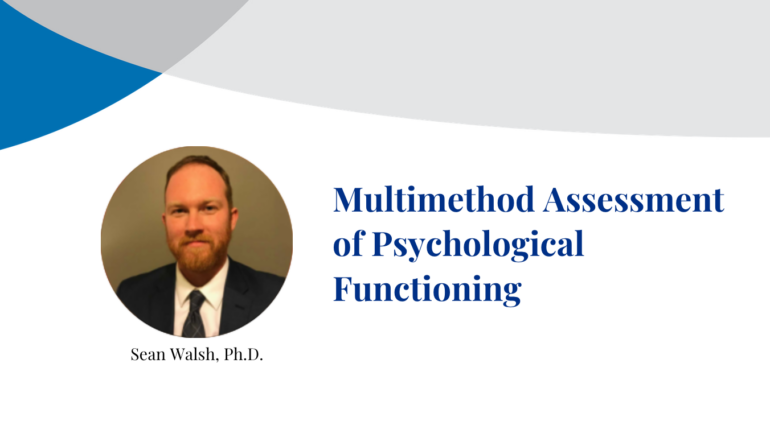Psychological assessment is a core facet of the practice of clinical psychology and provides a comprehensive picture of a person’s psychological functioning that is difficult to obtain otherwise. While other healthcare fields provide a range of psychotherapy services, psychological testing requires a licensed clinical psychologist well trained in principles of testing and evaluation to accurately disentangle the complexity of the human mind in ways relevant for clinical decision-making (i.e., diagnosis, treatment planning, conceptualization, and consultation). A comprehensive and holistic approach based on obtaining as much data as possible about a person’s psychological functioning is needed to provide accurate and useful clinical recommendations, which is especially true with complex clinical presentations and functional problems.
Psychological tests can generally be broken down into those that are self-reporting and performance-based measures of various aspects of psychological functioning. These types of measures are often used to assess areas that may be easy for people to describe within themselves via a questionnaire, such as if they are feeling depressed, but require the person to have a level of insight into their own psychological functioning that may be difficult to achieve or at times impossible to accurately describe.
Performance-based measures are another method of measurement that evaluates aspects of a person’s psychological functioning but instead asks them to complete a task, observe how they perform on this task, and then interpret their level of performance as indicative of their functioning in a psychological domain. These tests are useful when psychologists are interested in an aspect of functioning that the person is not able to self-report on or may present with bias, either intentional or unintentional, that could influence the description of themselves in a way that would provide an inaccurate representation of their underlying functioning. Intelligence tests are a good example of performance-based measures as asking someone to describe their intelligence may lead people to over-estimating their functioning in this domain.
Psychological assessments require an in-depth evaluation of a person’s psychological functioning based on the referral question because the results of these evaluations can lead to very impactful outcomes for people. For example, neuropsychological evaluations are often completed to determine if a person is experiencing symptoms of a major neurocognitive disorder (otherwise known as dementia), and the impact of this diagnosis can have a huge effect on someone’s life.
Clinical psychologists have a responsibility to ensure that assessment methods they employ are as comprehensive, reliable, and valid as possible so clinical decision-making based off of these results is as accurate as possible. By using multiple methods of assessment, psychologists can cross-validate the information obtained from different sources and reduce the impact of biases, errors, or limitations associated with relying on one specific method.
Assessments can also be tailored to the needs of the person to address specific concerns, which aids in identifying specific strengths and weaknesses as well as more targeted and effective interventions. A multimethod approach to psychological assessment is vital to ensure clinical psychologists are providing a comprehensive picture of a person’s psychological functioning.

